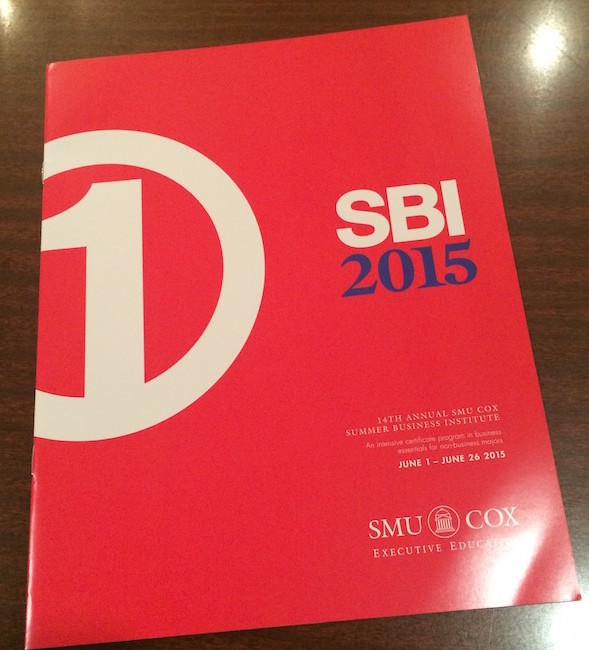The Summer Business Institute program or SBI, is a four-week, non-credit business certificate program that aims to give students the key principals of business for students to have under their belt without necessarily a full business degree. SBI was formed thirteen years ago at SMU and is a recent outlet for non-business majors to earn a basic understanding in the business curriculum of the Cox School of Business. A sophomore psychology major, Jack Richter thinks the program offers a great incentive to become successful in a business career path, “to be knowledgeable of fundamental business principles may open up doors to a business career that one may never have expected,” Richter said.
An information session was held March 25 to provide students with details about the upcoming program, in The Collins Executive Education Center at 5:30 p.m. In the meeting, the program’s Academic Director, Hemang Desai, outlined what students should expect throughout the program.

Although the course is only a month long, it will not skimp in vigor. Throughout the month-long course, students will be exposed to sessions about personal finance, economics, accounting and entrepreneurship. Classes are six hours a day with two tests throughout the program and a final presentation presented to a company selected by the students at the end of the course.
Kara Richstone, SBI’s Program Director, expressed how rewarding the program is and how the SBI enriches the community. The program not only revitalizes students with a newfound knowledge in business, but it also prepares them for jobs with many helpful tools from the career center. Students are required to rebuild their resumes within the course, and may also arrange for a mock interview from the career center.
First year Bridget McGowan, who is currently undecided on her major, was interested in attending the meeting to scope out her options for the next few years ahead. “I may choose to major or minor in something not necessarily business oriented, so I felt the program would always be a good cushion in case I don’t decide to go the business route,” McGowan said.
Desai also highlighted this point in the meeting. Some students in the past that originally were not interested in incorporating business into their curriculum prior to the program were influenced to pursue a business major or minor after their experience in the program.
Whether or not students choose to stick to business route after participating in the program, the subjects in the program could help to make students more marketable for their dream job and are definitely a necessity for life in general. Madeline Frizell, a junior and triple major in journalism, public relations and strategic communications and fashion media expressed this notion, “money is everywhere in life and in every profession,” she said “Having a basic understanding of personal finance and the proper tools to manage and understand their expenses is essential to financial success or at least staying out of debt in the future.”








